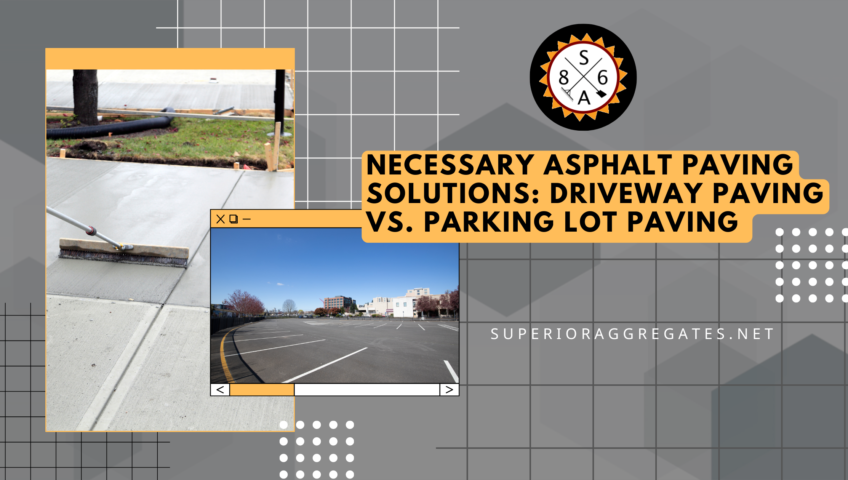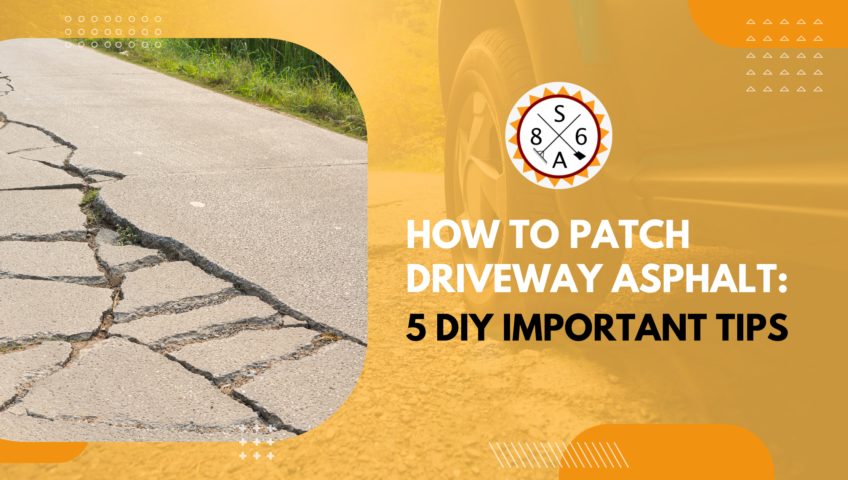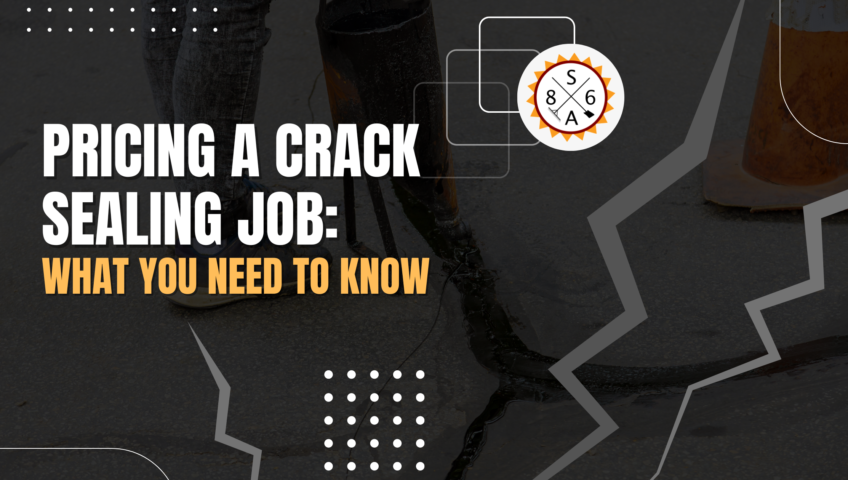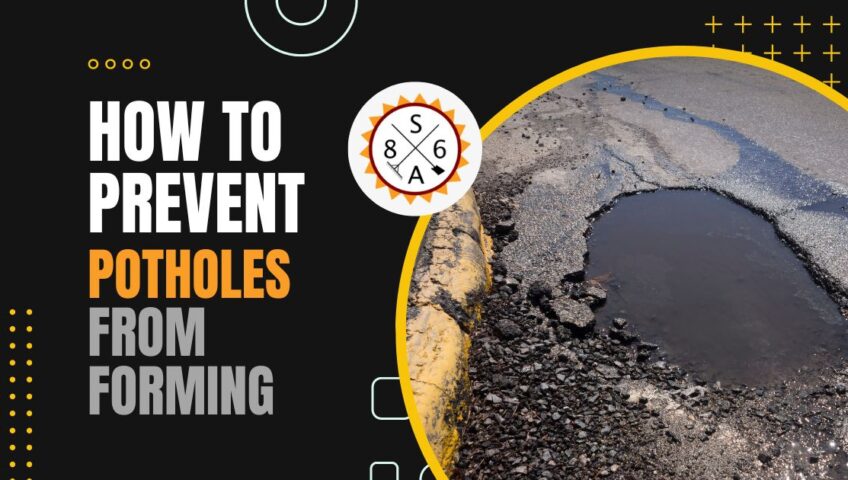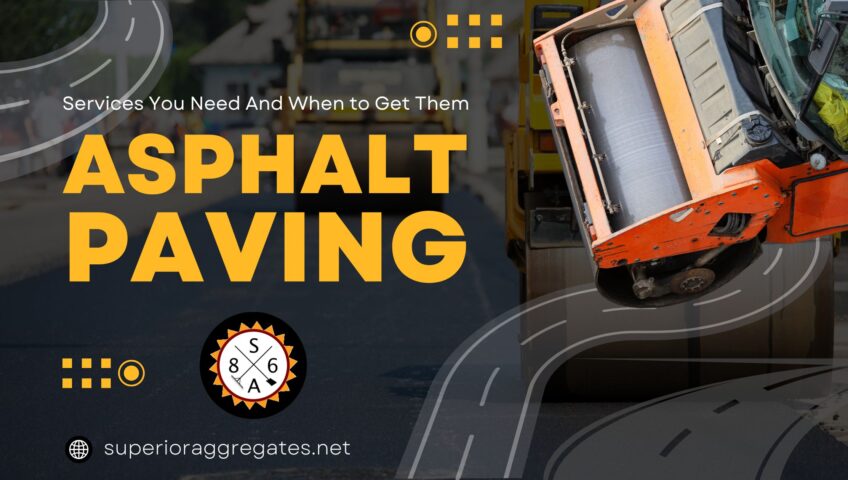
Asphalt Paving Services You Need And When to Get Them
While it’s true that asphalt pavement and other surfaces are inherently durable, that doesn’t mean that you can go years without routine maintenance and expect to avoid issues. As is true with all types of surfaces, you need to take proactive steps to stop a small problem today before it has a chance to become a bigger (and likely more expensive) one tomorrow.
Case in point: understanding the differences between the various asphalt paving services that are available will help you learn more about why they’re so important and when you should have each one performed.
Sealcoating
Due to the fact that your asphalt driveway is almost constantly exposed to water and other weather-related elements, sealcoating is often recommended. This is when you seal the surface of the asphalt pavement to protect it from moisture, erosion, fading, and other issues.
Generally speaking, this should become part of your regular maintenance regimen – so expect to have it performed every few years or sooner.
Cracksealing
As the name suggests, cracksealing is when you use a special type of adhesive sealant that is designed to both fill and properly seal any cracks that have developed on the surface of your pavement. Having this performed can also help slow down deterioration, which goes a long way towards increasing the overall lifespan of your asphalt as well.
This type of asphalt paving service is fairly straightforward – you’ll need to have it performed whenever you see cracks begin to develop. Even something very small that may be hard to see without careful examination would still be a cause for action.
Striping and Marking
Especially when you’re talking about a public, commercial space like a parking lot, it’s essential to make sure markings are as clear as possible. When people know where they’re expected to park, they tend to do so properly – thus avoiding accidents and other issues down the road.
A lot of people don’t realize that striping and marking isn’t something that you “do once and forget about.” Daily sun exposure will absolutely cause things to fade overtime. The harder those markings are to see, the more likely you are to be found liable in the event of an accident.
Therefore, this is a call you’ll need to use your best judgment to make. If you’re having a hard time seeing the parking marks, everyone else is, too – which is when you should enlist the help of professional to correct the issue.
Asphalt Repairs
Overall, there are a number of general asphalt repairs that people can expect as wear and tear runs its course. In addition to cracks in the surface of the asphalt itself, you may deal with potholes, dull or faded coloring, warping, areas that sink lower than they should, and even drainage issues. You’ll also want to be on the lookout for any type of tripping hazard. Be especially mindful after severe weather instanes.
These are the types of asphalt repairs that will typically be completed on an as-needed basis, although preventative maintenance is always encouraged.
If you’d like to find out more information about the various asphalt paving solutions that are available and when you might need each one, or if you’d just like to talk to an experienced team of asphalt contractors about your upcoming project in a bit more detail, please don’t delay – contact us today.
While it’s true that asphalt pavement and other surfaces are inherently durable, that doesn’t mean that you can go years without routine maintenance and expect to avoid issues. As is true with all types of surfaces, you need to take proactive steps to stop a small problem today before it has a chance to become a bigger (and likely more expensive) one tomorrow.
Case in point: understanding the differences between the various asphalt paving services that are available will help you learn more about why they’re so important and when you should have each one performed.
Sealcoating
Due to the fact that your asphalt driveway is almost constantly exposed to water and other weather-related elements, sealcoating is often recommended. This is when you seal the surface of the asphalt pavement to protect it from moisture, erosion, fading, and other issues.
Generally speaking, this should become part of your regular maintenance regimen – so expect to have it performed every few years or sooner.
Cracksealing
As the name suggests, cracksealing is when you use a special type of adhesive sealant that is designed to both fill and properly seal any cracks that have developed on the surface of your pavement. Having this performed can also help slow down deterioration, which goes a long way towards increasing the overall lifespan of your asphalt as well.
This type of asphalt paving service is fairly straightforward – you’ll need to have it performed whenever you see cracks begin to develop. Even something very small that may be hard to see without careful examination would still be a cause for action.
Striping and Marking
Especially when you’re talking about a public, commercial space like a parking lot, it’s essential to make sure markings are as clear as possible. When people know where they’re expected to park, they tend to do so properly – thus avoiding accidents and other issues down the road.
A lot of people don’t realize that striping and marking isn’t something that you “do once and forget about.” Daily sun exposure will absolutely cause things to fade overtime. The harder those markings are to see, the more likely you are to be found liable in the event of an accident.
Therefore, this is a call you’ll need to use your best judgment to make. If you’re having a hard time seeing the parking marks, everyone else is, too – which is when you should enlist the help of professional to correct the issue.
Asphalt Repairs
Overall, there are a number of general asphalt repairs that people can expect as wear and tear runs its course. In addition to cracks in the surface of the asphalt itself, you may deal with potholes, dull or faded coloring, warping, areas that sink lower than they should, and even drainage issues. You’ll also want to be on the lookout for any type of tripping hazard. Be especially mindful after severe weather instanes.
These are the types of asphalt repairs that will typically be completed on an as-needed basis, although preventative maintenance is always encouraged.
If you’d like to find out more information about the various asphalt paving solutions that are available and when you might need each one, or if you’d just like to talk to an experienced team of asphalt contractors about your upcoming project in a bit more detail, please don’t delay – contact us today.

